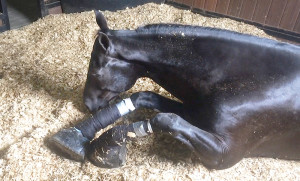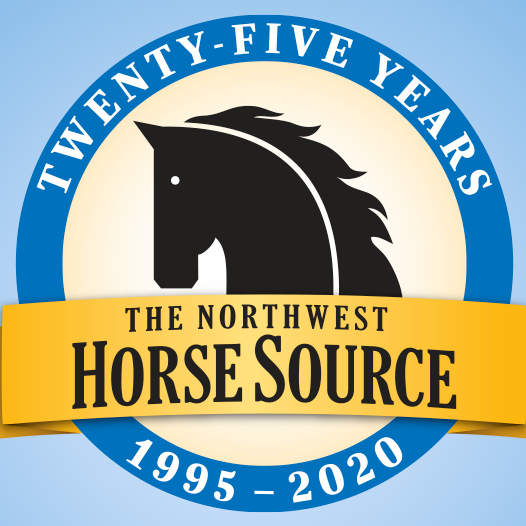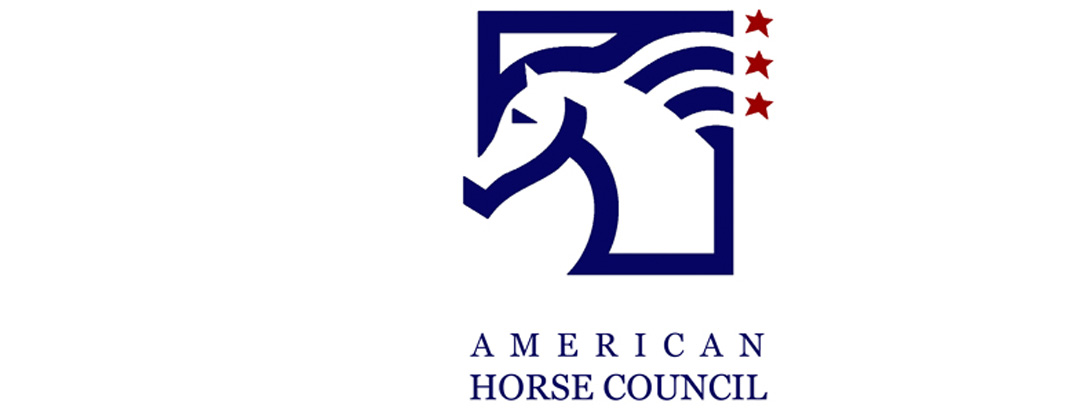AHC Submits Comments on Proposed Horse Protection Act Regulations
(Washington, DC)- The American Horse Council (AHC) has submitted comments to the U.S. Department of Agriculture’s (USDA) Animal and Plant Health Inspection Service (APHIS) regarding proposed changes to the regulations governing enforcement of the Horse Protection Act (HPA). The AHC supports taking action to strengthen HPA regulations, but in its comments requested USDA make several important improvements to proposed rule.
The HPA was enacted in 1970 to prohibit the showing, exhibiting, transporting or sale at auction of a horse that has been sored. Soring is an abusive practice used by some horse trainers in the Tennessee Walking Horse, Spotted Saddle Horse, and Racking Horse industry. It usually involves the use of action devices, chemicals, stacks or other practices to cause pain in a horse’s forelegs and produce an accentuated show gait for competition. Despite the existence of a federal ban on soring for over forty years, this cruel practice continues in some segments of the walking horse industry. Soring is not a problem in other segments of the horse industry.
 The USDA proposed rule would make several major changes to current HPA regulations with the goal of ending soring, including a new licensing program for HPA inspectors and a ban on action devices, pads, weighted shoes and foreign substances at walking horse shows, exhibitions, sales, and auctions.
The USDA proposed rule would make several major changes to current HPA regulations with the goal of ending soring, including a new licensing program for HPA inspectors and a ban on action devices, pads, weighted shoes and foreign substances at walking horse shows, exhibitions, sales, and auctions.
“The AHC strongly opposes soring and believes action is needed to stop the soring of “big lick” Tennessee Walking Horses, Racking Horses and Spotted Saddle Horses,” said AHC President Julie Broadway. “However, the AHC believed it was necessary to voice concerns that certain provisions of the proposed rule are too broadly written, not sufficiently defined, and could cause confusion for the horse show industry.”
The AHC’s comments strongly urge USDA to explicitly limit all new provisions to Tennessee Walking Horses, Racking Horses, and Spotted Saddle Horses, mirroring the widely supported Prevent All Soring Tactics Act or PAST Act. The AHC believes making this change will address most concerns the horse industry has with the proposed rule and will still achieve the goal of ending soring.
Additionally, the AHC supported USDA’s decision to eliminate the current Designated Qualified Person (DQP) program and remove Horse Industry Organizations (HIOs) from having a role in enforcement of the HPA. The AHC believes the new Horse Protection Inspector (HPI) program proposed in the rule will be able to more effectively enforce the HPA.
The AHC also asked USDA to take into consideration the costs the proposed rule could impose on smaller “flat shod” walking horse shows that make a good faith effort to comply with the HPA, and make accommodations for such shows. The AHC proposed several changes to the rule that it believes would help control costs for these types of walking horse shows.
“The AHC is unequivocal that many of the proposed changes to the HPA regulations are needed, but that it is equally important that any new regulations be narrowly focused on the problem of soring and do not inadvertently impact or unnecessarily burden other segments of the horse show industry that have no history of soring horses,” continued Broadway.
The AHC also reports that a large number of Members of Congress have expressed a position similar to that of the AHC. “We are pleased that over 180 Members of Congress have signed a letter to USDA that supports the proposed rule, but also calls on USDA to explicitly limit all new provisions to Tennessee Walking Horses, Racking Horses, and Spotted Saddle Horses,” said AHC Sr. VP, Policy & Legislative affairs Ben Pendergrass.
“We are appreciative of the leadership of Representatives Ted Yoho (R-FL) and Kurt Schrader (D-OR) on this issue.”
The AHC hopes USDA will include these needed changes in any final rule that is enacted.
The Congressional letter to USDA can be viewed here.
The AHC’s full comments can be viewed here.
About the American Horse Council
As the national association representing all segments of the horse industry in Washington, D.C., the American Horse Council works daily to represent equine interests and opportunities. Organized in 1969, the AHC promotes and protects the industry by communicating with Congress, federal agencies, the media and the industry on behalf of all horse related interests each and every day.
The AHC is member supported by individuals and organizations representing virtually every facet of the horse world from owners, breeders, veterinarians, farriers, breed registries and horsemen’s associations to horse shows, race tracks, rodeos, commercial suppliers and state horse councils.

News from the horse industry. Sharing today’s information as it happens. The Northwest Horse Source is not responsible for the content of 3rd party submissions.







